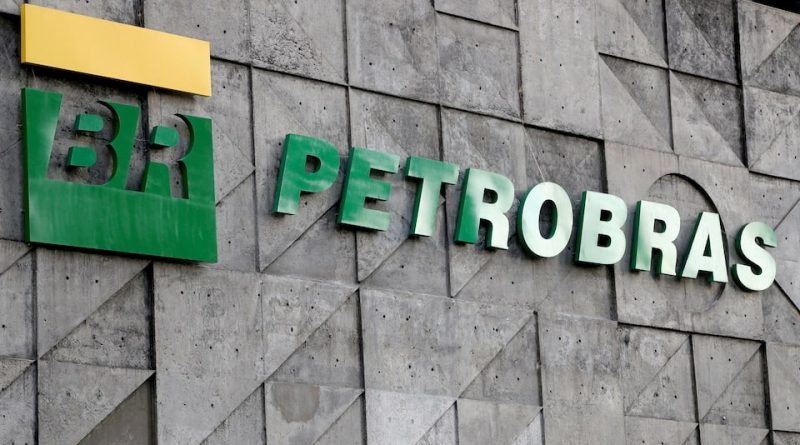Majority of Brazilians Rally Behind Protecting the Amazon, Urge Lula to Ban Oil Drilling Near Rainforest Coast
As Brazil gears up to host COP30 in Belem, a new national poll shows overwhelming public support for protecting the Amazon’s fragile ecosystem over expanding oil exploration — signaling a growing environmental awakening across the nation.
A majority of Brazilians are calling on President Luiz Inacio Lula da Silva to halt plans for oil drilling near the Amazon coast, underscoring the country’s shifting priorities toward sustainability and environmental protection.
According to a new Datafolha survey commissioned by corporate accountability group Eko, 61% of respondents oppose oil exploration in the Foz do Amazonas basin, one of Brazil’s most ecologically sensitive and biodiverse regions.
The findings come at a critical moment as Brazil prepares to host the United Nations Climate Summit, COP30, in the Amazonian city of Belem next year. As the world’s attention turns to Brazil’s environmental leadership, the survey highlights the strong public sentiment favoring conservation over fossil fuel expansion.
Growing Public Support for Environmental Protection
The survey revealed that opposition to oil drilling is especially strong among younger Brazilians aged 16 to 24, with a remarkable 73% expressing disapproval of exploration projects near the Amazon River’s mouth.
This generational stance underscores a broader cultural shift in Brazil — one that aligns with global youth movements prioritizing climate action, biodiversity protection, and sustainable growth.
The Foz do Amazonas basin has become a focal point of debate in Brazil’s energy policy. The region, near the northern coast of Amapá state, is considered a potential new frontier for oil exploration by the state-run energy giant Petrobras (Petroleo Brasileiro SA).
The company has already invested 180 million reais ($33 million) to keep a drilling ship on standby, pending environmental approval. However, civil society groups, scientists, and environmental advocates have voiced strong opposition, citing the risks to marine life, coral reefs, and indigenous communities dependent on the region’s fragile ecosystem.
Petrobras’ Position and Government’s Balancing Act
Petrobras argues that exploring deep waters in the region could help diversify Brazil’s energy portfolio, boost local economies, and ensure energy security. Despite these claims, the company faces regulatory hurdles.
Ibama, Brazil’s federal environmental agency, approved an emergency simulation at the proposed drilling site in September but requested several adjustments before granting final approval. Petrobras continues to await the agency’s final decision.
President Lula da Silva, known internationally for his commitment to climate action, faces a delicate balancing act. While he has consistently advocated for ending illegal deforestation by 2030 and promoting renewable energy, Lula has also defended Brazil’s sovereign right to explore its natural resources responsibly.
His administration is under pressure to deliver both economic opportunity and environmental integrity — two goals that are increasingly intertwined in the global climate dialogue.
Brazil’s Climate Leadership on the Global Stage
The timing of this debate is significant. As host of COP30, Brazil will be at the center of global discussions on how developing nations can lead climate transitions while maintaining economic growth. The Datafolha-Eko poll suggests that Brazilians overwhelmingly want their government to take bold, climate-conscious action.
According to the survey, 77% of respondents support Lula’s deforestation pledge, though only 17% believe the target is fully achievable. Additionally, 81% believe the government should do more to protect marginalized communities, and 60% report already feeling the impacts of climate change — from rising temperatures and floods to disruptions in agriculture and livelihoods.
Eko campaign coordinator Vanessa Lemos said the poll should serve as a wake-up call. “The coming months will be decisive for Lula’s legacy,” she stated. “The majority of Brazilian voters want him to protect nature and the climate. The world is watching how Brazil chooses to act.”
A Nation at the Crossroads of Change
Despite uncertainties, interest in Brazil’s oil frontier remains strong. In June, Petrobras, ExxonMobil, Chevron, and CNPC secured 19 of the 47 oil and gas exploration blocks offered in the Amazon coastal region — signaling continued international confidence in Brazil’s energy sector.
Yet, the growing domestic push for environmental accountability suggests that public opinion could influence corporate strategy and policy decisions moving forward.
As Brazil looks ahead to COP30, it stands at a pivotal moment in its history — a moment that could redefine its environmental and economic future. The message from the public is clear: Brazilians want their leaders to champion the protection of the Amazon, embrace renewable alternatives, and lead the world toward a greener, more sustainable future.
In the heart of Rio de Janeiro and across the vast Amazon basin, the conversation is no longer about choosing between economy and ecology — it’s about building a future where both can thrive together.



